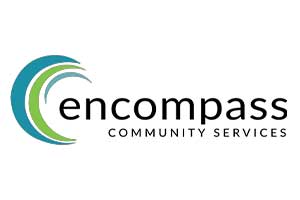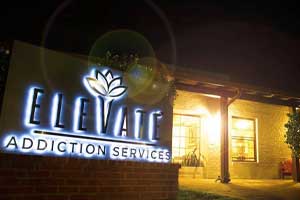Skip To Rehab Listing
Treatment Service Settings and Treatment Methods
Watsonville's many treatment programs, some of which are laid out below, handle an issue that is widespread in cities in every part of the US: alcohol and drug abuse. These rehabs combat this problem locally by offering locations and provisions that are suitable for patients within the area. These settings can include: short term drug rehab facilities, inpatient addiction treatment facilities, intensive outpatient treatment, long term drug rehab facilities, outpatient detox programs.
Drug and alcohol rehabs utilize many methods, ranging from long-established methodologies to newer techniques such as: dialectical behavior therapy, 12-step facilitation approach, individual psychotherapy, matrix model, motivational interviewing, trauma-related counseling. The result is a range of services that clear the path to achievable sustained sobriety for numerous patients.
Special Programs for Substance Abuse Offered by Rehab Facilities
Those struggling with substance abuse generally need personalized support to get off drugs and alcohol. That is why alcohol and drug rehab centers in Watsonville offer specialized resources that help patients within their particular situations. Some of these services are listed here: persons with post-traumatic stress disorder, programs for the hearing impaired, residential beds for client's children, transgender or (LGBT) clients, self-help groups, active duty military.
Rehab Payment Options in Watsonville, California
Clients encounter different economic circumstances, which is why substance abuse treatment facilities provide many payment options, including: private pay, private insurance, sliding fee scale, military insurance, state corrections or juvenile justice funds, other state funds.
Financing should never be an obstacle to substance abuse rehabilitation. Rehab centers guide patients toward the financing alternatives that support their individual financial concerns.
With a variety of facilities, rehabs, resources, modalities and payment options, Watsonville offers patients multiple options when it comes to seeking treatment from addiction.
Commonly Asked Questions about Addiction and Treatment
What are relationship risk factors for drug and alcohol abuse?
Several relationship factors can increase the risk of developing a drug or alcohol abuse problem. These include:
- Peer Pressure: One of the most significant relationship risk factors, particularly among young people, is pressure from friends or peers to use substances. This can lead to experimental use, which can progress to misuse or addiction.
- Family History of Substance Abuse: Growing up in a family where substance misuse or addiction is present can increase the risk of developing similar problems. This can be due to both genetic factors and the modeling of substance use behaviors.
- Abusive or Dysfunctional Relationships: People who are in abusive or highly stressful relationships may turn to drugs or alcohol as a form of self-medication or escape.
- Enabling Behaviors: If a person's substance use is consistently enabled or excused by their partner, family, or friends, it can perpetuate a pattern of misuse and make it harder for them to recognize or address their problem.
- Isolation or Lack of Social Support: People who feel socially isolated or lack supportive relationships may be more prone to substance abuse. Drugs or alcohol can sometimes be used as a way to cope with feelings of loneliness or disconnection.
- Normalization of Substance Use: In some social or cultural contexts, frequent or heavy substance use may be considered normal or acceptable, which can increase the risk of abuse and addiction.
- Co-dependency: In co-dependent relationships, one person may depend on the other's drug or alcohol problem just as the substance user depends on the substance, creating a cycle that can exacerbate the problem.
How does denial impact drug and alcohol abusers?
"Denial can have a profound impact on individuals struggling with drug and alcohol addiction, significantly affecting their health, relationships, and overall quality of life. Here are some ways in which denial can impact substance abusers:
Prevents Acknowledgment of the Problem: The most immediate impact of denial is that it prevents individuals from recognizing and acknowledging that they have a problem with drugs or alcohol. This can delay them from seeking treatment and starting the recovery process.
Perpetuates Substance Abuse: Denial can contribute to the continued use of substances despite negative consequences. Individuals may downplay the extent of their substance use or its impact on their life, allowing the cycle of addiction to continue.
Deteriorates Health: Denial can lead to a lack of recognition of the serious health consequences related to substance abuse. This can result in worsening physical health, including damage to vital organs, increased risk of disease, and potential overdose.
Strains Relationships: Denial can strain relationships with friends, family, and loved ones. It can cause conflicts, broken trust, and isolation, as the individual may reject concern from others or fail to acknowledge the impact of their substance use on those around them.
Hinders Professional and Academic Progress: Denial can prevent individuals from seeing the negative effects of their addiction on their work or studies. This can lead to job loss, poor academic performance, or loss of career or educational opportunities.
Interferes with Treatment: Even if an individual does seek treatment, denial can interfere with the effectiveness of the intervention. An individual in denial may be resistant to treatment strategies, less likely to engage fully in the recovery process, or more likely to relapse.
Who is SAMHSA?
SAMHSA, or the Substance Abuse and Mental Health Services Administration, is an U.S. federal agency within the Department of Health and Human Services (HHS). Established in 1992, its primary mission is to reduce the impact of substance abuse and mental illness on American communities. SAMHSA focuses on improving the quality and availability of prevention, treatment, and rehabilitation services related to substance use disorders and mental health conditions.
Some of the key functions and responsibilities of SAMHSA include:
- Funding: SAMHSA provides grants and funding to states, territories, tribes, communities, and organizations to support the delivery of mental health and substance use prevention, treatment, and recovery services.
- Technical assistance: The agency offers technical assistance and training to service providers, practitioners, and other stakeholders to enhance their capacity to deliver evidence-based practices and improve the quality of care.
- Data collection and analysis: SAMHSA collects and analyzes data on behavioral health in the United States, including the prevalence and patterns of substance use and mental health conditions. This information helps inform policy, program planning, and decision-making at the federal, state, and local levels.
- Public awareness and education: SAMHSA raises awareness about the importance of behavioral health, promotes evidence-based practices, and works to reduce stigma and discrimination surrounding mental illness and substance use disorders.
- Guidelines and best practices: The agency develops and disseminates guidelines, best practices, and other resources to improve the effectiveness of prevention, treatment, and recovery services for substance use disorders and mental health conditions.
- Collaboration and partnerships: SAMHSA collaborates with other federal agencies, state and local governments, professional organizations, advocacy groups, and community stakeholders to coordinate efforts and resources to address behavioral health issues.
To support its mission, SAMHSA operates various centers, such as the Center for Substance Abuse Prevention, the Center for Substance Abuse Treatment, and the Center for Mental Health Services. Additionally, the agency manages the National Helpline (1-800-662-HELP), a confidential, free, 24/7, 365-day-a-year treatment referral and information service for individuals and families facing mental health and/or substance use disorders.














